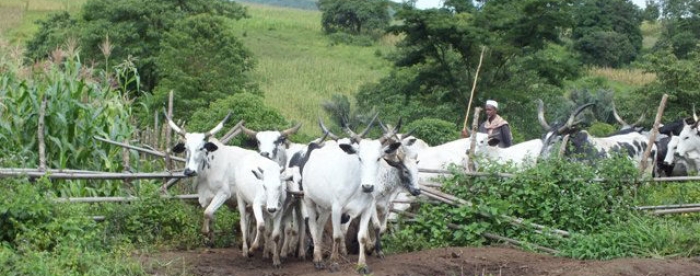News
Our stories ... ...

Ghana - 03 February, 2022
To increase adoption of climate-smart farming technologies, the ReDIAL project organized climate-smart agriculture (CSA) sensitization forums for cereal and grain smallholder farmers in the Ejura municipality. The sensitization was carried out in collaboration with the Ejura Department of Agriculture extension officers in Yaabraso, Anyinasu, Kasei, Nyame Bekyere, Bayere Nkwanta, Abrewano, Frante, Teacherkrom, Dijoe, and Fa me shɛ baabi farming communities.
The ReDIAL project community sensitization forums were interactive and informing. Farmers contributed their knowledge on climate change (causes, manifestation, and impact on crop yield). Mr Daniel Kofi Abu, facilitator for the sensitization forums took farmers through climate-smart practices such as minimal mechanical soil disturbance, permanent soil cover with living or dead plant material, and crop diversification through rotation or intercropping. He mentioned that since the Ejura municipality is located in Ghana’s transition zone, farmers should cultivate the habit of integrating trees on their farmlands or practice agroforestry. He also encouraged farmers to shift from excessive use of chemical fertilizers and adopt environmentally friendly alternatives such as green manure and compost. Mr. Abu pointed out that CSA allows for more stable yields even in the midst of weather extremes.
Farmers in the various community were of the view that CSA technologies have the potential to improve their yields and increase their resilience to climate change impact. They however outlined some constraints for adopting some of the CSA practices. Lack of equipment to implement some of the practices on a large scale, access to knowledge and practical training on implementation of technologies, not seeing the impact of CSA immediately on crop yield, limited finance, difficulty in accessing organic manure in quantities (e.g. poultry manure) and cattle-herding issue were some of the constraints outlined. Overall, farmers in communities visited perceived the cattle-herding issue as the most important constraint. Bismark Acheampong, a farmer in Frante, speaking on the cattle-herding issue revealed that “it will be difficult to practice cover cropping or mulching because the cattle will feed on these materials, trample and harden the soil surface as a result of their numbers. To avoid these issues, most of us burn what could have been used as mulch or soil cover.” Alalima Frafra, a female farmer at Nyame Bekyere, also lamented the cattle-herding issue. She mentioned that these herders who are usually armed sometimes rape women on their farms when their husbands are not with them.
The smallholder farmers called on the traditional authority, municipal assembly, and security agencies to help address the cattle-herding issue. They also appealed for support from the Department of Agriculture, non-governmental organizations (NGOs), the private sector, donor agencies, and the government to enable them overcome identified challenges and facilitate the adoption of CSA practices.